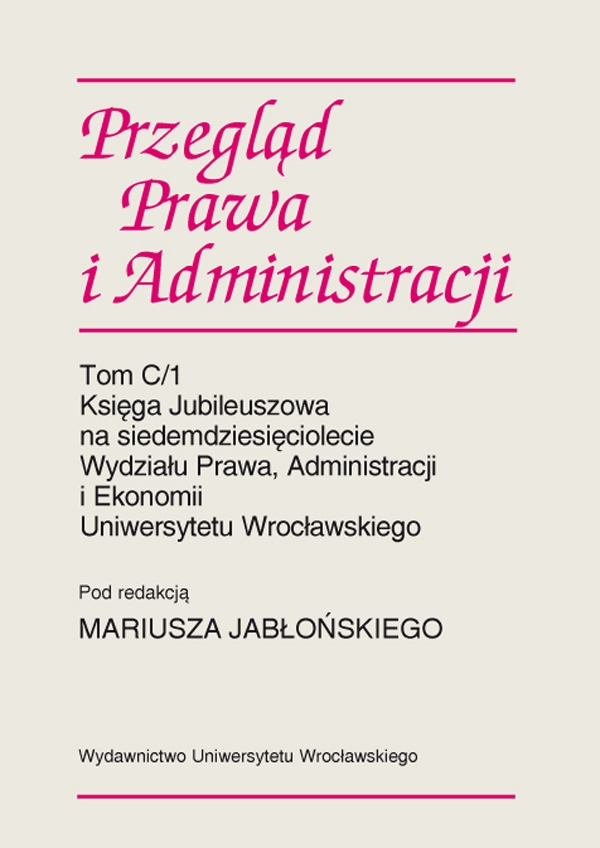

Artykuły archiwalne

DEMOCRACY IN GERMAN MUNICIPAL GOVERNMENT
In German federal states municipal government is a stable, constitutionally guaranteed, decentralised and democratic form of exercising public administration by local self-government communities. Decentralisation and democracy have a slightly different nature, as they are accordingly legal-organisational and legal-political phenomena. Authority in municipalities is exercised via the mechanisms of representative democracy and executed by a deliberative body a council and an executive body. Both bodies possess direct democratic legitimacy as they are elected by municipality inhabitants. Apart from the general election municipality inhabitants have at their disposal two more categories of the procedures of direct democracy. The first category of procedures is available for all the inhabitants of municipality and comprises a meeting of the municipality inhabitants and an inhabitants’ proposal. Competent municipal bodies are obliged to consider matters either discussed during the meeting or submitted by the inhabitants. The other category of procedures is framed for the narrower category of municipality inhabitants and comprises a referendum and a citizens’ proposal. The referendum and citizens’ proposal regard matters belonging to the competence of a municipal council with some legal exceptions. Should they be effectively executed, they replace the resolutions of a municipal council.